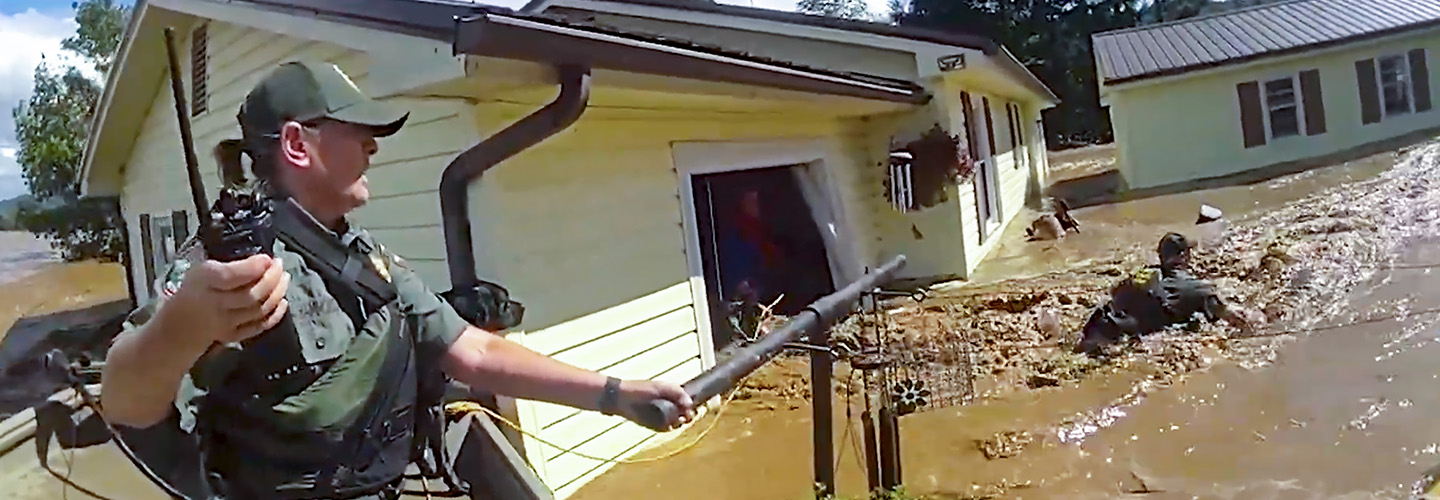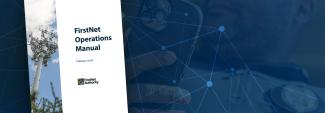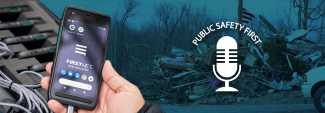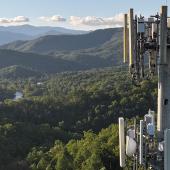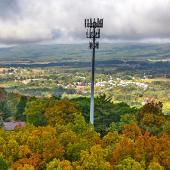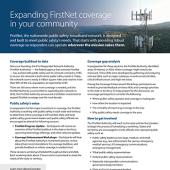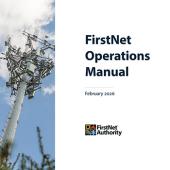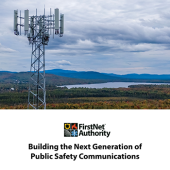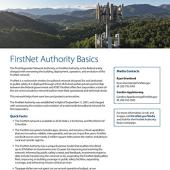When Hurricane Helene ripped through the southeast United States in late 2024, it caused widespread devastation. Communities faced powerful winds, flooding, and infrastructure damage that stretched across multiple states.
Yet amid the destruction, public safety sprang into action to protect lives and restore community services quickly and safely. From in the field to 9-1-1 call centers, public safety agencies turned to FirstNet to help maintain critical communications when traditional infrastructure was destroyed by the storm. Public safety in Tennessee and North Carolina relied on FirstNet resiliency and redundancy during the hurricane and in the days that followed.
TACN radios stay connected during the storm
The Tennessee Advanced Communications Network (TACN) is a statewide interoperable radio system designed to support communications for local, state, and federal first responders. Managed by the Tennessee Department of Safety and Homeland Security, the system has been integrated with FirstNet to provide redundancy for traditional radio communications and add data capabilities for first responders.
During Hurricane Helene, TACN radios became a lifeline for first responders in the field.
“All the responders on the scene had both voice coverage and data coverage using both the TACN radio system and the FirstNet cellular coverage,” explained TACN Director Jeff Gray.
As responders dealt with heavy flooding, impassable roads, and power outages, they also saw impacts on their traditional radio systems. In one case, first responders initiated a swift water rescue of several citizens, but the waters rose so fast that the responders themselves were overtaken. They found themselves stranded, holding on to trees and logs for safety. Using their traditional land mobile radios (LMR), the responders attempted to call the local county 9-1-1 center for help, but the center could not be reached.
With their FirstNet-integrated TACN radios, the responders were able to reach their home 9-1-1 center. The ability to communicate proved critical — a Tennessee Highway Patrol helicopter was dispatched, which located and rescued the responders and civilians.
“Being able to be on the scene and have those integrations where it can go out over cellular internet into those databases is not only time-saving, but life-changing,” said Gray.
North Carolina: PSAP redundancy with FirstNet
In North Carolina, Hurricane Helene put pressure on Public Safety Answering Points (PSAPs) in the western part of the state, which saw a surge in 9-1-1 calls. From September 26-28, 2024, when the hurricane was most devastating, North Carolina emergency telecommunicators answered nearly 90,000 calls — a 55% increase compared to the same period the year before.
“I can't imagine what these folks [call takers] thought — the calls that they took. There were some who said they talked to their own family members. During one call, they [a call taker] talked with their families and knew their homes were devastated, but they were there, and they took the calls for others,” said Executive Director for the North Carolina 9-1-1 Board Pokey Harris.
Since 2023, the North Carolina 9-1-1 Board has worked in partnership with AT&T and the FirstNet Authority to build a highly resilient IP-based network called ESInet (Emergency Services IP Network). ESInet is a closed private network for 9-1-1 traffic only; FirstNet provides redundant connectivity for ESInet. This system-wide redundancy ensured North Carolinians could still reach help when they needed it most.
During the storm, a 9-1-1 call center in Madison County lost connectivity. Thanks to the ESInet, the Board was able to reroute those 9-1-1 calls to another call center situated 220 miles away for one month. Then, utilizing a FirstNet connection to the ESInet, 9-1-1 calls were able to be routed to Madison County as the local PSAP. For additional redundancy, the Board had a Satellite Cell on Light Truck (SatCOLT), a mobile cell site, set up to ensure connectivity during those critical days after the storm.
“From the North Carolina 9-1-1 Board perspective, being able to provide the statewide emergency services network and then add the redundancy of the FirstNet solution — we can serve all citizens as they're living their life every day,” said Harris.


